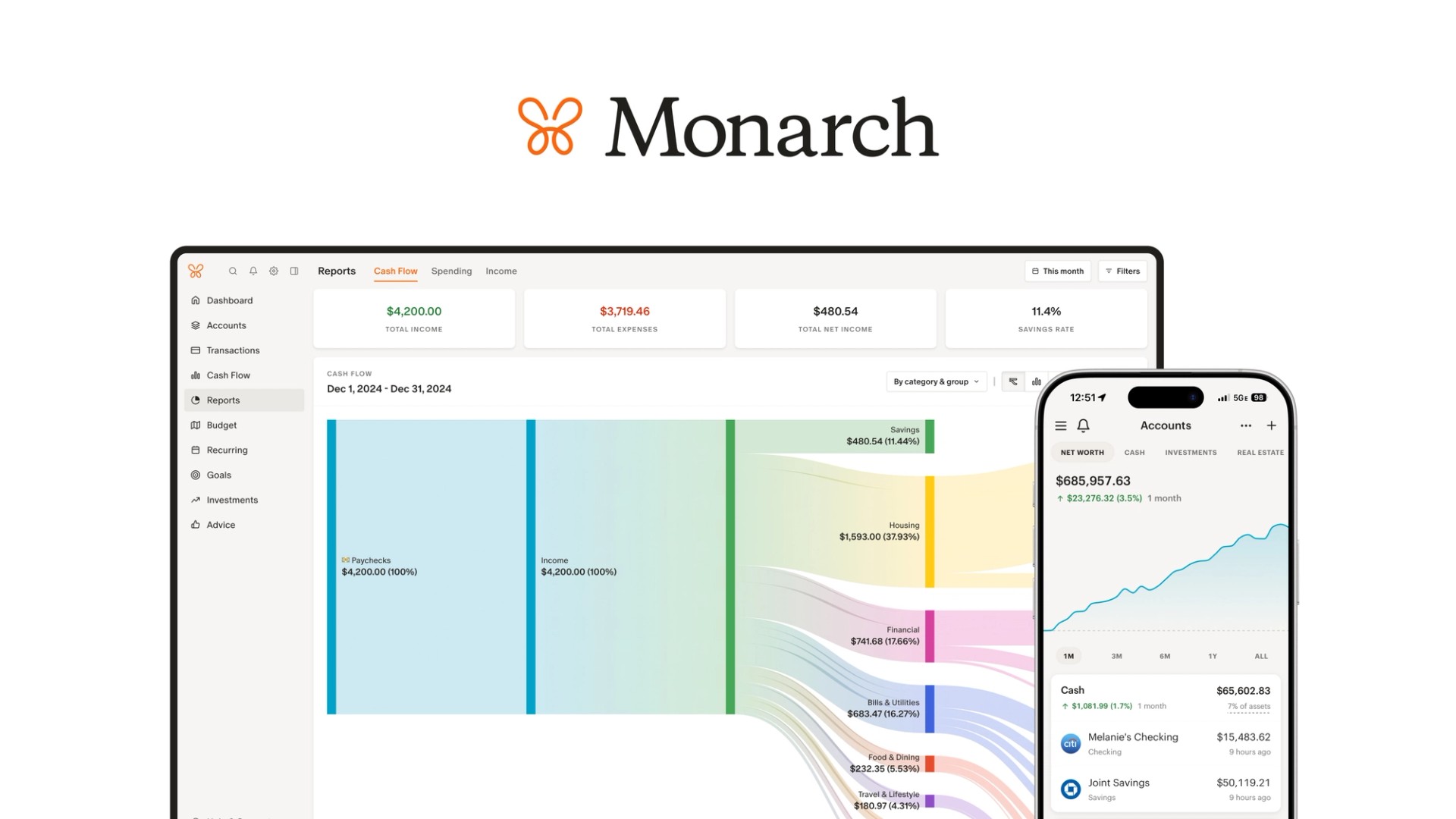Your paycheck just hit your checking account and, thankfully, you have a little bit of money left over. What should you do with it?
Or maybe you’re thinking about the impact of paying for childcare as your children get older. Can you afford it?
When it comes to answering some of the more vexing questions in personal finance, sometimes it’s better not to take the DIY approach. Luckily there’s a sprawling ecosystem of financial advisors, coaches, planners, and accountants to help.
88% of Americans say it would be helpful to work with a financial professional — but only 44% are (source). Finding trustworthy financial help is one of those things that no one teaches you but can be instrumental in your long-term success. In this article, we’ll explore the types of financial helpers you can hire and how to find that works for you and your household.
The Types of Financial Professionals
There are few legal designations in the financial professional space. As a result, there is an overlapping and often confusing collection of terms that make it difficult to find what you’re looking for.
Below are general, common sense definitions. While these can help you begin your search, don’t solely rely on what a professional calls themselves and be sure to get an understanding of the services they provide (see “Questions to Ask”).
Investment advisors
What they do: Long-term planning to insure your money grows and accomplishes your goals. Investment advisors not only make suggestions, they execute transactions on your behalf. These advisors often work for large institutions or banks.
“Investment advisor” is a legal categorization with a special set of laws and rules governing their oversight. Some states require advisors to pass a proctored exam, such as the Series 65 or Series 7.
Financial coach
What they do: Act as a consultant and accountability partner for accomplishing your financial goals. Anyone can be a coach and there is no legal restriction from anyone calling themselves a coach. Coaches often have accountability groups or communities and build a financial plan for you to execute. Coaches usually do not complete financial transactions on your behalf.
“A lot of people don’t need an expert, they need accountability to stick to the plan,” says Steven Cox, founder of ValueRoom Advisory.
Accountants
What they do: Accountants help you “balance your books” either as a business or an individual. Most individuals use accountants to help them file their tax returns to ensure they are taking advantage of all of the means of reducing their tax obligation. Most accountants will not make investment advice and accountants do not complete financial transactions for you beyond filing your taxes with your government.
“Anyone who has complications beyond a W2 wage, should probably have an accountant. A good account is proactive rather than reactive,” says Sean Gates, director of Carry tax at Carry.com.
Financial planner
What they do: Financial planners offer a wide range of services including estate planning, retirement planning, investment optimization, and more. Planners often apply a holistic view of your financial health. Further, financial planners often specialize in a certain demographic such as young couples, doctorcs, or small business owners. The financial planning industry is largely self-regulating — planners often have a “Certified Financial Planner” or CFP certification that requires them to be governed by a code of ethics.
Most planners will help you “level set” where you are from a cash flow, saving, and spending perspective and then work with you to create a plan for savings and reaching your goals.
How Financial Professionals are Compensated
Financial incentives drive decision making. Before you enter into a relationship with a financial professional, you must understand how they are compensated and the pros and cons of that approach.
“The thing about financial advisors, they are running their own practice. They can set fees however they want to,” says Steven.
Many professionals are a mix of the below compensation types, but sure to ask them in the initial vetting process to be sure.
Commission-Based Compensation - The professional receives a commission for selling you various financial products. These can include life insurance, mutual funds, or annuities. Commision-based professionals may also receive a portion of each successful investment or transaction and thus may be incentivized to buy and sell equities.
Management fees or “Assets under management” or “AUM” - The professional receives their yearly fee according to the amount of your assets they are actively managing. This is typically used by investment advisors and commonly are 1% or 2% of all assets.
With this model, professionals are motivated to increase the number of assets they manage, whether that’s growing your wreath or angling to manage more of your portfolio. As a client, you must do the math and determine how the active management of your wealth at a 1% fee would compare to a fee-only or passive investment strategy with no percentage-based fee.
For example, someone with a 1% managing your combined assets of $900,000 would pocket a yearly fee of $9,000. This is equivalent to a $750 monthly fee.
Fee-based - The professional is paid a flat amount at an either monthly or annual basis, regardless of the performance of your investment. This can be an hourly rate or a flat amount.
“This model tends to be better aligned with customers because the pain of paying is very real. Customers expect to get value at the cadence that they pay you,” says Sean. “However if someone is selling their time, there is a limited number of customers they can manage.”
Fee-only - Same as above, however “fee-only” means that the advisor is not also receiving commission or any other type of compensation.
One-time fee - A simple transaction versus an ongoing relationship. Typically used by a specialist or someone providing a single deliverable. For example, someone that helps redo your budget, create a spending plan, or file your taxes.
Pros | Cons | |
Commission-based | Can reduce up-front costs by compensating your advisor with something you’d purchase regardless. | Incentivizes selling you things that may not align with your best interests. |
Assets Under Management | Good if your net worth is low. Aligns long-term interests. | Can substantially “eat into” your gains at a certain net worth level. |
Fee-Based | You get to keep all of your gains after the fee. | Caps number of customers advisor can manage. Reduces upside for advisor. |
Questions to Ask
To be clear, asking how a professional is compensated is the number one question you should ask and the basis of all future conversation. However, after that it’s helpful to get a more complete picture of the advisor or planner you are thinking of working with.
Here are some questions to consider:
Question #1: Will you have a fiduciary duty towards me?
A fiduciary is someone who is required by law to act in your financial best interest. According to the U.S. Department of Labor, someone who fails this standard may be required to compensate you for losses. Be clear when the person is or is not required to have a fiduciary duty toward you. Certain licenses and certifications require this, or make it more likely.
“[A fiduciary] is a legal classification and also tends to be related to the products or advice that they're giving out. Different products are held to different standards,” says Glen Monroe, founder of Monroe Wealth Management. “One could buy an annuity from a financial advisor, but they're not required by law to act in a fiduciary manner versus if someone's giving retirement advice and they're a CFP.”
Question #2: How would you describe the clients you tend to work with?
You’re looking for someone with experiences that roughly map to yours. If you’re an empty nester on the verge of retirement, you probably don't want to link up with an advisor who works with young professionals.
Question #3: What are your education and certifications?
From the aforementioned CFP to the certified financial analyst (CFA) to certified public accountant (CPA) there is an alphabet soup of certifications with their own requirements, rules, and ethical/legal frameworks.
Question #4: How would you describe the problems you typically solve?
There are professionals that specialize in exercising tech startup shares. Or buying and renting multiple property units. Or navigating taxes across borders. Come with your specific issues and ask if they’ve ever handled a case like yours.
“Make sure the person giving you the advice is staying in their lane,” says Kai Dickens, head coach and owner of Dr. Budgets.
Other tips for being a good client
Know your goals, or at least your “comfort number” - What are your financial goals? (Read our post about determining your goals with your partner). Or if you aren’t sure of your goals, what is the number that, if you saw it in your bank account, you would feel relieved? A good planner and advisor can work backward from that number to show you what it would take and whether it’s possible with your current situation.
“That is usually the first step of finding the gap between where [a client] is at and where deep inside they want to be,” says Steven.
Be a bit vulnerable - If you’ve never shared your finances with another person, it can be a bit bracing to do so for the first time. Be ready to share the good and the bad as well as candidly and honestly share what you’d like to build toward. Is it retirement? Moving? Having children? Taking a new job?
“I joke that sometimes we're a bit like Dr. Phil in that the conversations that we have can become very emotional. So be ready to be a little bit uncomfortable,” says Andrea Thompson, founder of Modern Cents. “This is not an unemotional process.”
Be coachable - The best financial planning is useless if it’s not followed. When you approach a financial professional, be open minded to change some deeply held beliefs and ingrained habits.
“Be 100% committed to changing the habits”, says Kai. “Some of my best clients reach out to me on a weekly basis.”
“If you are not open to receiving other ways of thinking about things and you have your own ideas and you're just not really open to other people's ideas, that's not going to create a great client advisory relationship,” says Andrea.
Be honest with how much time you want to spend on your personal finances - Some clients enjoy the act of making their own investments and monitoring them. Others less so. Especially if you are going with an investment advisor who can transact on your behalf, be clear about your expected level of involvement.
Places to Find Advisors
Ready to get started? Here are some places to find the right financial professional for you.
XY Planning Network - Search this trade association’s membership of fee-only practitioners according to 100+ criteria including LGBTQIIA+ friendliness or someone that optimizes your finances for work/life balance.
CFP Network - Search those who have achieved a CFP certifications.
NAPFA - The National Association of Personal Finance Advisors allows you to search their membership of fee-only advisors.
Finra Broker Check - A collection of resources for checking if your broker has had any disciplinary actions filed against them as well as links to state by state oversight organizations.
CPA Verify - Confirm that your accountant is, in fact, licensed with no disciplinary actions filed against them.
“Just because your dad used John down the block, doesn’t mean you need to use John down the block too,” says Kai.





